Related Research Articles
The Gene Ontology (GO) is a major bioinformatics initiative to unify the representation of gene and gene product attributes across all species. More specifically, the project aims to: 1) maintain and develop its controlled vocabulary of gene and gene product attributes; 2) annotate genes and gene products, and assimilate and disseminate annotation data; and 3) provide tools for easy access to all aspects of the data provided by the project, and to enable functional interpretation of experimental data using the GO, for example via enrichment analysis. GO is part of a larger classification effort, the Open Biomedical Ontologies, being one of the Initial Candidate Members of the OBO Foundry.

UniProt is a freely accessible database of protein sequence and functional information, many entries being derived from genome sequencing projects. It contains a large amount of information about the biological function of proteins derived from the research literature. It is maintained by the UniProt consortium, which consists of several European bioinformatics organisations and a foundation from Washington, DC, United States.
BioCreAtIvE consists in a community-wide effort for evaluating information extraction and text mining developments in the biological domain.

Pfam is a database of protein families that includes their annotations and multiple sequence alignments generated using hidden Markov models. The most recent version, Pfam 34.0, was released in March 2021 and contains 19,179 families.
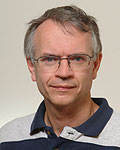
Amos Bairoch is a Swiss bioinformatician and Professor of Bioinformatics at the Department of Human Protein Sciences of the University of Geneva where he leads the CALIPHO group at the Swiss Institute of Bioinformatics (SIB) combining bioinformatics, curation, and experimental efforts to functionally characterize human proteins.
InterPro is a database of protein families, domains and functional sites in which identifiable features found in known proteins can be applied to new protein sequences in order to functionally characterise them.
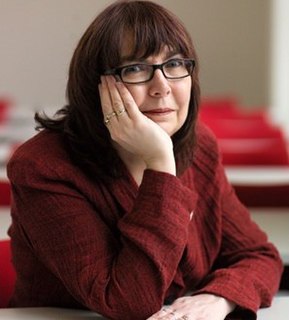
Carole Anne Goble, is a British academic who is Professor of Computer Science at the University of Manchester. She is principal investigator (PI) of the myGrid, BioCatalogue and myExperiment projects and co-leads the Information Management Group (IMG) with Norman Paton.

Intelligent Systems for Molecular Biology (ISMB) is an annual academic conference on the subjects of bioinformatics and computational biology organised by the International Society for Computational Biology (ISCB). The principal focus of the conference is on the development and application of advanced computational methods for biological problems. The conference has been held every year since 1993 and has grown to become one of the largest and most prestigious meetings in these fields, hosting over 2,000 delegates in 2004. From the first meeting, ISMB has been held in locations worldwide; since 2007, meetings have been located in Europe and North America in alternating years. Since 2004, European meetings have been held jointly with the European Conference on Computational Biology (ECCB).
The European Molecular Biology network (EMBnet) is an international scientific network and interest group that aims to enhance bioinformatics services by bringing together bioinformatics expertises and capacities. On 2011 EMBnet has 37 nodes spread over 32 countries. The nodes include bioinformatics related university departments, research institutes and national service providers.
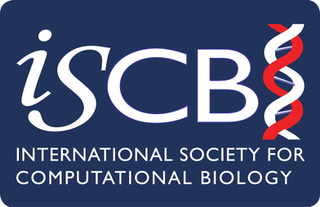
The International Society for Computational Biology (ISCB) is a scholarly society for researchers in computational biology and bioinformatics. The society was founded in 1997 to provide a stable financial home for the Intelligent Systems for Molecular Biology (ISMB) conference and has grown to become a larger society working towards advancing understanding of living systems through computation and for communicating scientific advances worldwide.
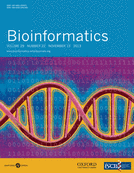
Bioinformatics is a biweekly peer-reviewed scientific journal covering research and software in bioinformatics and computational biology. It is the official journal of the International Society for Computational Biology (ISCB), together with PLOS Computational Biology. Authors can pay extra for open access and are allowed to self-archive after 1 year.
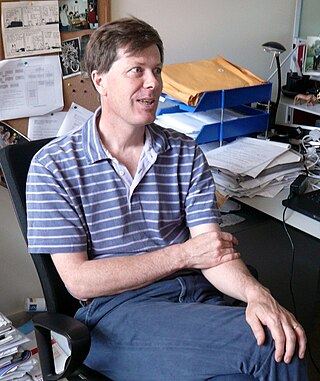
Richard Michael Durbin, FRS, born 30 December 1960, is a British computational biologist. He is currently an Associate Faculty member at the Wellcome Trust Sanger Institute and Professor of Genetics at the University of Cambridge. Previously, he was Senior Group Leader at the Wellcome Trust Sanger Institute for over 20 years and an Honorary Professor of Computational genomics at the University of Cambridge.

Robert Clifford Gentleman is a Canadian statistician and bioinformatician who is currently the founding executive director of the Center for Computational Biomedicine at Harvard Medical School. He was previously vice president of computational biology at 23andMe. Gentleman is recognized, along with Ross Ihaka, as one of the originators of the R programming language and the Bioconductor project.

Database: The Journal of Biological Databases and Curation is an online peer-reviewed open access scientific journal that covers research on databases and biocuration. The journal was established in 2009 with David Landsman as the editor-in-chief. DATABASE is the official journal of the International Society for Biocuration. The journal has published the proceedings of the International Biocuration Conferences since 2009.
AgBase is a curated genomic database containing functional annotations of agriculturally important animals, plants, microbes and parasites. AgBase biocurators provides annotation of Gene Ontology terms and Plant ontology terms for gene products. By 2011 AgBase provided information for 18 organisms including horse, cat, dog, cotton, rice and soybean.

Teresa K. Attwood is a Professor of Bioinformatics in the Department of Computer Science and School of Biological Sciences at the University of Manchester and a visiting fellow at the European Bioinformatics Institute (EMBL-EBI). She held a Royal Society University Research Fellowship at University College London (UCL) from 1993 to 1999 and at the University of Manchester from 1999 to 2002.

Alexander George Bateman is a computational biologist and Head of Protein Sequence Resources at the European Bioinformatics Institute (EBI), part of the European Molecular Biology Laboratory (EMBL) in Cambridge, UK. He has led the development of the Pfam biological database and introduced the Rfam database of RNA families. He has also been involved in the use of Wikipedia for community-based annotation of biological databases.

Christine Anne Orengo is a Professor of Bioinformatics at University College London (UCL) known for her work on protein structure, particularly the CATH database. Orengo serves as president of the International Society for Computational Biology (ISCB), the first woman to do so in the history of the society.

The Comprehensive Antibiotic Resistance Database (CARD) is a biological database that collects and organizes reference information on antimicrobial resistance genes, proteins and phenotypes. The database covers all types of drug classes and resistance mechanisms and structures its data based on an ontology. The CARD database was one of the first resources that covered antimicrobial resistance genes. The resource is updated monthly and provides tools to allow users to find potential antibiotic resistance genes in newly-sequenced genomes.

Biocuration is the field of life sciences dedicated to organizing biomedical data, information and knowledge into structured formats, such as spreadsheets, tables and knowledge graphs. The biocuration of biomedical knowledge is made possible by the cooperative work of biocurators, software developers and bioinformaticians and is at the base of the work of biological databases.
References
- ↑ Bateman, Alex (2010-04-15). "Curators of the world unite: the International Society of Biocuration". Bioinformatics. 26 (8): 991–991. doi: 10.1093/bioinformatics/btq101 . ISSN 1367-4803.
- ↑ Gaudet P, Arighi C, Bastian F, Bateman A, Blake JA, Cherry MJ, D'Eustachio P, Finn R, Giglio M, Hirschman L, Kania R, Klimke W, Martin MJ, Karsch-Mizrachi I, Munoz-Torres M, Natale D, O'Donovan C, Ouellette F, Pruitt KD, Robinson-Rechavi M, Sansone SA, Schofield P, Sutton G, Van Auken K, Vasudevan S, Wu C, Young J, Mazumder R (2012). "Recent advances in biocuration: meeting report from the Fifth International Biocuration Conference". Database (Oxford). 2012: bas036. doi:10.1093/database/bas036. PMC 3483532 . PMID 23110974.
- ↑ Gaudet P, Mazumder R (2012). "Biocuration Virtual Issue 2012". Database (Oxford). 2012: bas011. doi:10.1093/database/bas011. PMC 3308167 . PMID 22434845.
- ↑ "Biocuration Career Awards | International Society for Biocuration". www.biocuration.org. Retrieved 2020-11-18.
- ↑ Grant, Rhys (2020-07-06). "Congratulations to Department members on their recent appointments and awards!". www.bioc.cam.ac.uk. Retrieved 2020-11-18.
- ↑ amycameron (2018-02-09). "Award for OME Data Curator Eleanor Williams". School of Life Sciences. Retrieved 2020-11-18.